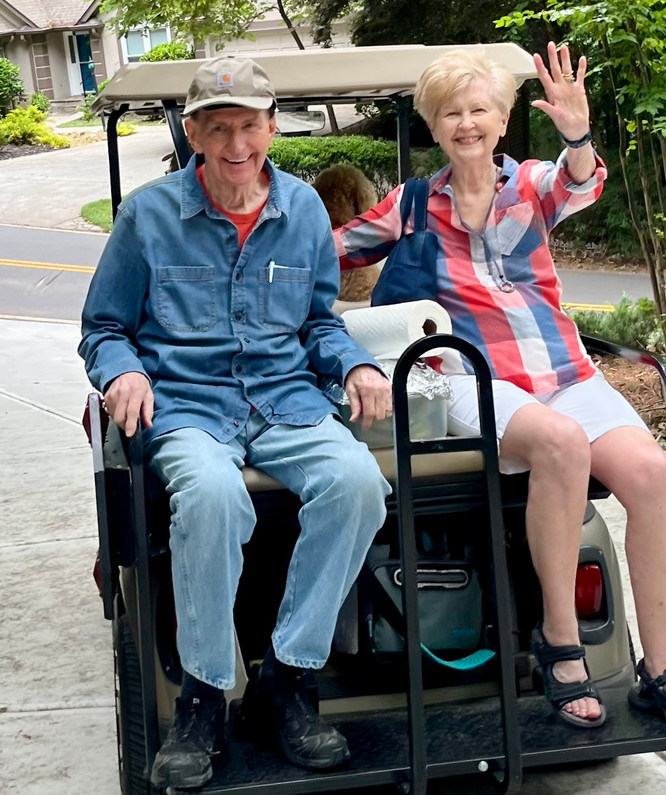Reflections on Life and Loss: A 90-Year-Old’s Perspective
Nancy Harrison
At my age, I’ve learned that the conversations that matter most are the ones about real life - the messy, beautiful, complicated parts that make us human. We talk about family, about memories, about the people we’ve loved and lost. We share stories about our children and grandchildren, worry about their futures, and marvel at how the world has changed. Health becomes a frequent topic, not in a morbid way, but practically - comparing doctors, sharing what works, celebrating small victories.
What I’ve discovered over nine decades is that there are surprisingly few topics that are truly off-limits. When you’ve lived this long, you realize that most things benefit from being brought into the light. The subjects we used to whisper about - money troubles, family conflicts, fears about dying, regrets we carry - these actually become easier to discuss with age. There’s a freedom that comes with having less to lose and more wisdom to share. The things I might hesitate to discuss now are mainly those that could hurt someone unnecessarily or betray a confidence that isn’t mine to share.
When friends are grieving - and at my age, this happens more often than I’d like - I’ve learned that what helps most is simply being present, showing up. Not trying to fix their pain or offer platitudes about “everything happening for a reason.” Instead, I simply show up, sit quietly, and listen to the same story about their loved one for the hundredth time if that’s what they need. Sometimes I share my own losses, not to compare pain but to show them they’re not alone in this particular human experience. What seems to help most is normalizing their grief - letting them know it’s okay to laugh one moment and cry the next, that there’s no timeline for healing.
As for what helps me when I’m grieving, I’ve found that routine can be both a blessing and a curse. Some days, the familiar rhythm of making coffee and reading the paper and working the puzzles feels comforting. Other days, it feels hollow without the person I used to share these moments with. What consistently helps is staying connected to people, even when I don’t feel like it. My church community, my neighbors, my family - they keep me tethered to life when grief threatens to pull me under. I’ve also learned to be gentle with myself, to let the sadness come and go like weather.
The truth about talking about losses is complicated. Some people do feel comfortable - they find healing in sharing memories, in speaking their loved one’s name, in processing their emotions out loud. But others clam up, either from their generation’s training to “keep private things private” or from a fear that their grief is too much for others to bear. I’ve noticed that people often take their cues from those around them. If you show that you’re comfortable hearing about someone’s loss, they’re more likely to open up. If you change the subject or look uncomfortable, they’ll learn to keep it to themselves.
What I wish more people understood is that grief isn’t something you “get over” - it’s something you learn to carry differently. At 90, I’ve buried my parents, my former husband, three siblings, and several dear friends, and even one of Bill’s children. Each loss changed me, but not in ways that made me bitter or broken. Instead, they taught me to appreciate the preciousness of time, to say “I love you” more often, and to find joy in small moments because I know now how quickly this too can be taken away.
The real gift of reaching this age is perspective. I’ve seen that most of the things we worry about don’t happen, and the things that do happen are usually more manageable than we feared. I’ve learned that talking about our losses doesn’t make them worse - it makes them more bearable. And I’ve discovered that even in the deepest grief, there can be moments of unexpected grace, small kindnesses from strangers, and the quiet satisfaction of knowing that love and memories persist even after the person is gone.
About the Author
Nancy Worley Harrison is a senior, new wife, mom, writer living in Stone Mountain, Georgia.
Worleywords@gmail.com
© Nancy Worley Harrison




